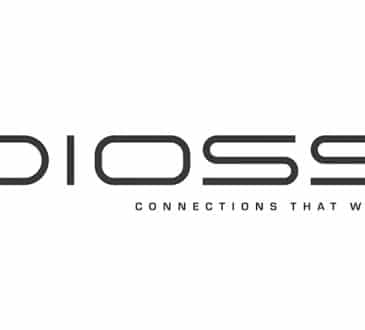Critical Leadership Lessons we can Learn from Higher Ed

Is leadership in higher education dissimilar from leadership in other industries? At first consideration, my guess is that most would answer “no”. However, an institutional environment in the 21st century represents the convergence of leadership, business, customers (students), politics, social issues, mental health concerns, food insecurities, safety, and so many more lenses that stakeholders look through as they experience their education. Being a CEO, President, or high-level leader within higher education demands that you are prepared each day to serve employees, faculty, and your customers who may live on campus or may experience their education online (and anything in between). These customers interact and experience the product every single day for a significant period, so feedback is ever-present and commands on-demand attention.
Here are three critical leadership factors that every leader, in higher education or otherwise, needs to master to keep visibility high, results positive, and customers and employees happy. These are The Three A’s.
Approachability Factor
Are you an approachable leader? Do you feel like your direct reports or division employees know that they can come talk to you when needed, and that you will be empathetic and receptive? If you’ve answered yes to these questions, that is fantastic. But most leaders would answer yes to these questions whether they are true or not. Because we don’t want to believe that our employees are afraid or nervous to come and speak with us. Being an approachable leader is not something that is achieved and sustained; it is achieved repeatedly with every staff interaction. Each interaction has the potential to enhance or reduce your approachability factor – but how do you achieve it in the first place?
Touting your open-door policy does not make you an approachable leader. It means that you have an open-door policy and a physical door that will probably be shut most of the time due to the sensitive conversations you have. The best approach to becoming an approachable leader is to learn (and use) the names of your employees when you say hi to them every single morning as you walk around the office. Be nice. Be caring. And invite people into conversation about their weekends, friends, families, and passions (outside of the day-to-day work).
Authenticity Factor
Authenticity rules. “Fake it until you make it” doesn’t work in the world particularly when customers are posting on social media about your interactions with customers or decisions in running an organization. What matters – truly matters – is that your stakeholders know that you are confident in yourself and in the execution of business operations to further the organizational mission. Being our authentic selves at work is important. Not only because imposter syndrome wears upon our psyche, but because we need to have fun at work. If we don’t enjoy our careers, neither will those around us who have to interact with us many times each day. As a leader, people need to believe in you and in your vision for achieving the organizational mission. We have to see ourselves in our leaders, to some degree. Not in that we agree with them and their decisions, but that they have our best interests at heart. Authenticity, to me, is the basis to creating trust. We don’t trust those that we don’t believe.
Accountability Factor
An approachable and authentic leader with poor results is a short-term leader despite good intentions. Your accountability factor – your ability to produce results, replicate those results, and grow the organization – shows your internal and external stakeholders that outcomes are everything. While outcomes can come qualitatively and quantitatively, its visibility of outcomes and holding people accountable to achieving outcomes, that balances out the approachability and authenticity factors. Leaders can be well-liked, empathetic, and hold themselves and others accountable for achieving positive business outcomes. Accountability also manifests itself in ways that contribute to the authenticity and approachability factors.
Remember that piece of paper or trash that you saw in the hallway? Did you pick it up or walk by it? If you picked it up and threw it away, your employees will connect the accountability of keeping a clean workspace with your authenticity – being a grounded human who picks up trash rather than waiting for someone else to do it.
The three A’s are interconnected and are the foundation of my leadership philosophy that I have crafted within the field of higher education after more than 20 years in the industry (both in for-profit and non-profit schools). While one factor is not more important than another, I do feel that it is important to be human in the work place. With each interaction I have with my employees, I always think to myself – “What is my employee going to tell their spouse or significant other about my interaction with them”? Will they say that I was a fair leader, that I listened to their needs and responded appropriately? Will they say that they love their job but hate their boss? Thinking about how I might be perceived within the home of my employees as they discuss their work with their family keeps me focused on the three A’s.
Written by Dr. Joe Sallustio.
Have you read?
World’s trendiest countries, 2023.
World’s Richest People (Top Billionaires, 2023).
Best Apps for Reading News for Google’s Android and Apple’s iOS.
Music successful CEOs and C-level executives listen to.
Which are the healthiest countries in the world for 2023?
Ready to join the CEOWORLD magazine Executive Council– Find out if you are eligible to apply.
Add CEOWORLD magazine to your Google News feed.
Follow CEOWORLD magazine headlines on: Google News, LinkedIn, Twitter, and Facebook.
Copyright 2024 The CEOWORLD magazine. All rights reserved. This material (and any extract from it) must not be copied, redistributed or placed on any website, without CEOWORLD magazine' prior written consent. For media queries, please contact: info@ceoworld.biz








